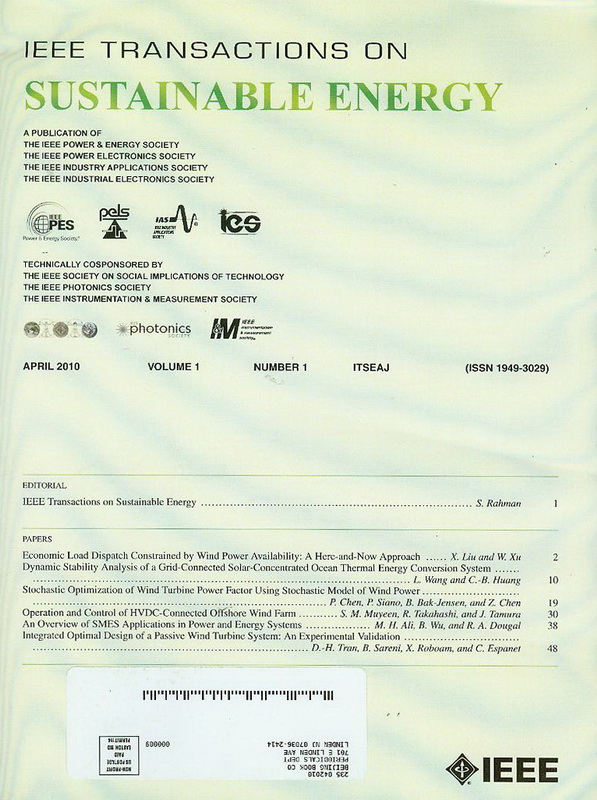Aggregating Large-Scale Residential Users for Regulation Reserve Provision: Truthful Combinatorial Auction Based Approach
IF 8.6
1区 工程技术
Q1 ENERGY & FUELS
引用次数: 0
Abstract
The proliferation of flexible loads has empowered residential users in contributing both upward and downward frequency regulation reserves to the power grid. Due to barriers like minimum bid size, residential users with relatively small power consumption must be aggregated before they can enter the reserve market. However, the large number of residential users renders the aggregation mechanism design problem a challenging task. In particular, the cost for reserve provision of each user is not only highly heterogeneous, but also coupled through both the temporal dimension and the up/down regulation direction. In order to allow the users to fully express their costs, in this paper, we propose a combinatorial reverse auction (CRA) framework as the market mechanism for user aggregation. In this auction, the aggregator is the auctioneer and procures reserves from residential users. The users submit package bids consisting of combinations of both upward and downward reserves over multiple time-slots, capturing the coupling in the user cost. Furthermore, to address the infamous computational challenges of large-scale combinatorial auctions, we develop a novel fast combinatorial auction (FCA) mechanism that can be solved in polynomial time. It includes an approximate winner determination algorithm and a critical payment scheme. Notably, our proposed mechanism is rigorously proved to possess desirable economic properties such as truthfulness and individual rationality. Extensive simulations have validated the theoretic properties of the proposed CRA mechanism and its advantages over existing methods. In particular, compared with the widely employed truthful Vickery-Clarke-Groves (VCG) mechanism, CRA can be基于真实组合拍卖的大规模居民用户调控准备金聚集方法
灵活负荷的激增使住宅用户能够为电网提供向上和向下的频率调节储备。由于最低投标规模等障碍,电量相对较小的住宅用户必须经过聚合才能进入备用市场。然而,大量的住宅用户使得聚合机制设计问题成为一项具有挑战性的任务。特别是,每个用户的储备准备成本不仅具有高度异质性,而且通过时间维度和上下调节方向耦合。为了让用户充分表达自己的成本,本文提出了一种组合反向拍卖(CRA)框架作为用户聚合的市场机制。在本次拍卖中,集成商作为拍卖商,从居民用户处获取储备。用户提交由多个时隙的上行和下行储备组合组成的包投标,从而捕获用户成本中的耦合。此外,为了解决大规模组合拍卖的计算挑战,我们开发了一种新的快速组合拍卖(FCA)机制,可以在多项式时间内解决。它包括一个近似赢家确定算法和一个临界支付方案。值得注意的是,我们提出的机制被严格证明具有理想的经济属性,如真实性和个人合理性。大量的仿真验证了所提出的CRA机制的理论特性及其相对于现有方法的优势。特别是,与广泛使用的真实维克里-克拉克-格罗夫斯(VCG)机制相比,当用户数量大于1000时,CRA可以比VCG快10^{4}$。同时能够实现接近最优的社会成本,其中平均最优损失为2.92%。
本文章由计算机程序翻译,如有差异,请以英文原文为准。
求助全文
约1分钟内获得全文
求助全文
来源期刊

IEEE Transactions on Sustainable Energy
ENERGY & FUELS-ENGINEERING, ELECTRICAL & ELECTRONIC
CiteScore
21.40
自引率
5.70%
发文量
215
审稿时长
5 months
期刊介绍:
The IEEE Transactions on Sustainable Energy serves as a pivotal platform for sharing groundbreaking research findings on sustainable energy systems, with a focus on their seamless integration into power transmission and/or distribution grids. The journal showcases original research spanning the design, implementation, grid-integration, and control of sustainable energy technologies and systems. Additionally, the Transactions warmly welcomes manuscripts addressing the design, implementation, and evaluation of power systems influenced by sustainable energy systems and devices.
 求助内容:
求助内容: 应助结果提醒方式:
应助结果提醒方式:


